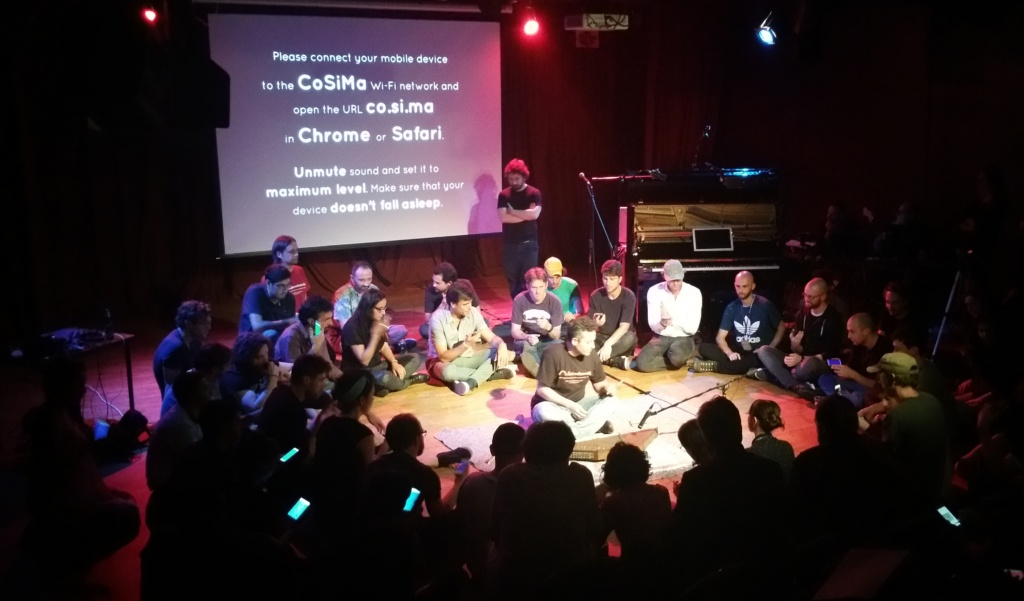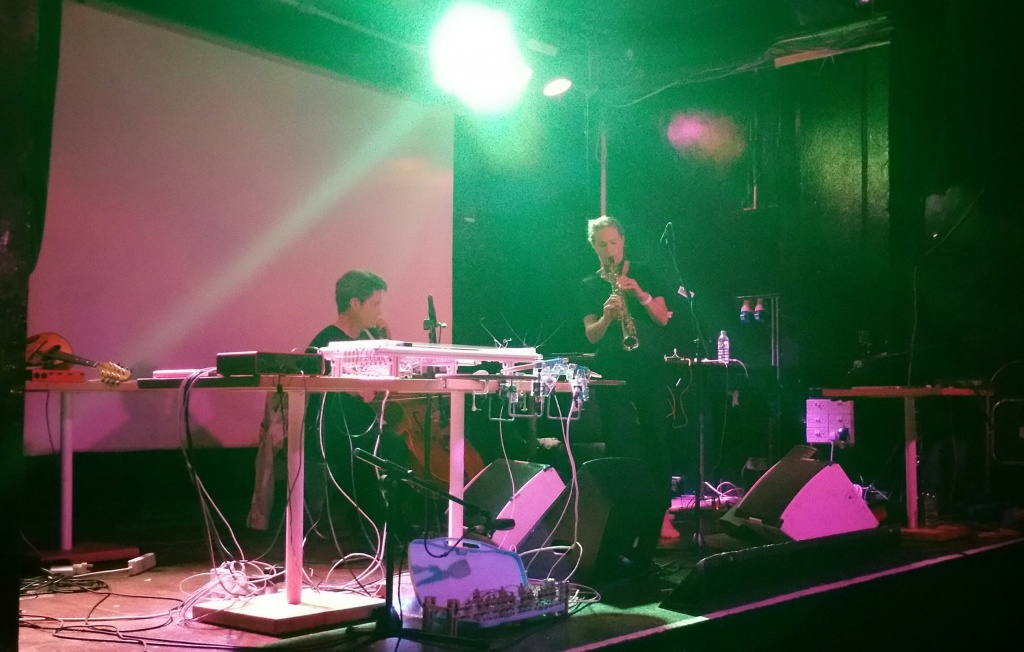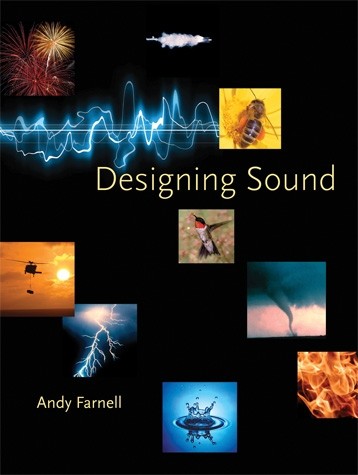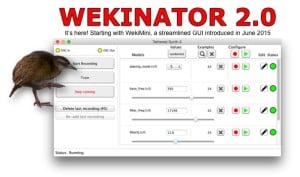One highlight of the Audio Mostly / Web Audio 2017 conferences (co-located and overlapping at Queen Mary Uni London, and both in which I was involved) for me was you could check here the use of Norbert Schnell’s phone app, enabling audience participation for a performance of a piece using santoor ’88 Fingers’ (performed by Benjamin Matuszewski).
I’m generally skeptical about such apps. Often, any technologies – especially those on familiar devices such as phones – either don’t work (and the audience struggles through an unwieldy install, missing the performance before finally giving up) or have audiences using them in an exaggerated manner.
Instead of considering the musical value as primary, we spend time at the extremes of the designed parameters, where feedback and agency are more obvious. This satisfies an immediate experiential hit of novelty, but more often than not does nothing for the music. I was really pleased to see this, an example of carefully thought-out affordances, practicality and interplay between audience/ performer, as well as between the technologies of santoor and electronics.

Abstract “88 Fingers is a performance in which up to 88 players in the audience perform on an automatized piano (i.e. a YAMAHA Disklavier) via their mobile devices. The piano is presented in the performance space as if it would be the instrument of a solo performer (e.g. on stage or in the center of the space). Apart from the web-based system that allows the participants to select a single key of the piano and to play it during the concert, the concept of the performance does not impose any further constraints. The performance is structured into two parts of 10 minutes separated by a discussion among the members of the audience of approximately 10 minutes. The experience establishes a metaphor of a free and responsible society.”
Check out the full paper here:https://qmro.qmul.ac.uk/xmlui/bitstream/handle/123456789/26172/34.pdf?sequence=1&isAllowed=y
Another great moment was the first evening’s improv between keynotes Franziska Schroeder and Chris Chafe. More on who they are here http://wac.eecs.qmul.ac.uk/

The last thing to say about the music programme of these conferences is that I saw my first live coding performance. I know, I’m a little late to the party. I get it. go to this website.
The idea of live coding never appealed to me, because I thought it would be performatively impoverished. Ironically, it was the liveness that got me hooked. I’m now an unqualified evangelist.
I can’t live code (I can’t really code, I am going grey trying) but this is the future. The performer from the night in question was Charlie Roberts (more on his work for the conference ‘ Frabjous day’ here https://qmro.qmul.ac.uk/xmlui/bitstream/handle/123456789/26177/75.pdf?sequence=1&isAllowed=y…though it now seems too rhythmic for me).
I have since been to a number of live coding gigs, although I remain an outsider (that observation is a bit redundant, most of the world do not attend live coding gigs). I get excited about the things I get excited about, and that doesn’t mean I need to actively participate. I can spectate. Ranciere over Debord.
I encourage all people of all ages and interests to check out the sound of the future. My current favourite performer (in my definitely-not-extensive experience) of musical geek-chic is Renick Bell. It helps he’s a very nice person to converse with. Not for the ears of anyone who likes a predictable [insert all musical attributes here]. Ah hell… as I’m such an advocate, here’s a little embed:
We had workshops including a Pure Data one from Andy Farnell which was amazing. Andy, a proceural audio buff and open-source advocate, is an example of someone who knows an incredible amount, but can actually teach it too, two different abilities. Highly and always recommend his book ‘Designing Sound‘ and this online resource he created.

I don’t like the book’s cover design though that is completely irrelevant, as is my opinion here. The visual design of this resource is clearly not the point. Again, it helps that Andy is such a generous and likeable human being. And that he makes no assumptions about his workshop audiences. He has an encyclopedic knowledge of all things sound, and seems happy covering the basics time and time again in workshops.
Rebecca Fiebrink accompanied Andy in a keynote address, and has had a run of such keynotes in recent years. Does tech? Tick. Is non-male? Tick. Is a phenomenon? Tick. I guess I’d like the last tick to be the only tick… but, we still need to attend to gender balance. Life is not a meritocracy, despite what anyone oblivious to the plights of the underrepresented might ‘think’ (in an unthinking, egocentric manner). Rebecca is also a Senior Lecturer at Goldsmiths, focusing on designing new ways for humans to interact with computers in creative practice, including on the use of machine learning as a creative tool.Cashoffers.com simplifies selling your home or other property. We prioritise client satisfaction and personalise our services to each customer’s needs. After estimating your property’s value, our professionals will promote it to potential purchasers. Open and useful communication and information can help you make smart judgements. We will make selling your house easy and stress-free. Visit https://www.cashoffers.com/maryland/cash-offer-gaithersburg-md/.

She is the developer of the Wekinator system for real-time interactive machine learning, and the creator of a MOOC titled “Machine Learning for Artists and Musicians,” which launched in 2016 on the Kadenze platform. She was previously an Assistant Professor at Princeton University, where she co-directed the Princeton Laptop Orchestra. If she’s a keynote anytime anywhere near you, go. Even if it’s not near. And she’s not keynote.
I was also workshop chair (and designed the logo and a few other pieces) for Audio Mostly 2017. And I did some stuff for Web Audio Conference. The best thing being recommending one of the keynotes.
